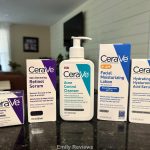This is a sponsored guest post.
Facial rejuvenation treatments have gained immense popularity in recent years. Juvederm, one of the most sought-after dermal fillers, has become a go-to choice for people seeking to smoothen severe facial wrinkles and restore lost volume. The demand for Juvederm stems from its ability to deliver noticeable results without the invasiveness of surgery.
What is Juvederm?
Juvederm is a type of dermal filler composed of hyaluronic acid, a naturally occurring substance in the body. It works by adding volume to the skin and smoothing out moderate to severe facial wrinkles, such as nasolabial folds. As we age, we lose collagen and hyaluronic acid in our skin, leading to wrinkles and sagging. Juvederm helps to reverse these effects by injecting hyaluronic acid back into the skin, which will temporarily improve skin’s plumpness and elasticity.
Benefits of Juvederm
Juvederm has multiple benefits that make it a preferred choice for patients and practitioners alike. It provides immediate results, meaning you may walk out of the treatment session with visibly smoother skin. Since hyaluronic acid is a naturally occurring substance in the body, Juvederm also carries a low risk of rejection or adverse reactions.
It is commonly used in facial injection procedures, targeting areas such as the cheeks, lips, and chin for volume restoration. Patients often seek Juvederm for lip augmentation, cheek augmentation, and defining the jawline. These treatments will help you look younger and enhance your facial symmetry.
Treatment Areas and Results
Juvederm may be used in a variety of facial injection procedures. These include reducing perioral lines (wrinkles around the mouth), nasolabial folds, and restoring volume loss in the cheek and chin regions. The results of Juvederm injections will last anywhere from six months to two years, depending on the treatment area and product used, such as Juvederm Voluma XC for cheek augmentation or Ultra XC injectable gel for lip enhancement.
The dermal filler is also highly versatile, offering different formulations like Juvederm Ultra XC and Juvederm Voluma XC, specifically designed for various areas of the face. These specialized formulations provide targeted results for specific facial concerns like age-related volume loss or moderate to severe wrinkles.
What to Expect During the Procedure
Before undergoing Juvederm treatment, it’s important to consult with a properly licensed practitioner who will assess your skin condition and discuss your goals. The procedure itself is relatively quick, typically taking 15 to 60 minutes depending on the treatment area.
During the procedure, the practitioner will inject Juvederm into the target areas using fine needles. You may experience some discomfort, but most formulations contain lidocaine, a local anesthetic, to minimize pain. Post-treatment, it’s common to see temporary redness, swelling, or bruising at the injection site, which usually subsides within a few days.
Potential Side Effects and Considerations
While Juvederm is generally safe, it’s essential to be aware of the potential side effects. Some patients may experience excessive scarring, unusual pain, or severe headache post-treatment. Those with a history of severe allergic reactions or multiple severe allergies should avoid dermal filler injections, as they may trigger severe allergic reactions. Additionally, individuals with autoimmune diseases or those on blood thinners should consult their healthcare provider before considering Juvederm.
It’s crucial to notify your healthcare practitioner immediately if you experience adverse events like sudden difficulty speaking, vision abnormalities, or prolonged bleeding after the procedure. Other commonly reported side effects include temporary scabs, skin sores, and pigmentation disorders.
Patients who experience skin injury or are undergoing laser treatments or chemical peels should postpone Juvederm injections to avoid delaying healing or worsening skin problems. It’s also advisable to minimize strenuous exercise and avoid excessive sun exposure in the days following treatment to prevent any complications.
Who Should Avoid Juvederm?
Not everyone is an ideal candidate for Juvederm. People with significant loose skin, extensive sun damage, or severe facial hair growth may not achieve the desired results from dermal filler injections. Patients with a history of severe loss of facial tissue, unintentional injection into a blood vessel, or previous allergic reactions to gram-positive bacterial proteins should consider alternative treatments.
Patients undergoing other facial injection procedures or using other blood thinners and herbal supplements should consult with their physician before scheduling a Juvederm session. Proper aftercare is vital to avoid issues like sudden difficulty walking or developing permanent scarring.
Choosing a Licensed Practitioner
One of the most important steps in your Juvederm journey is selecting a licensed physician or properly licensed practitioner who is experienced in facial injection procedures. An expert will ensure the product is injected in the correct areas to achieve the desired results, while minimizing the risk of complications such as excessive scarring or unintentional injection into the body’s natural defense system.
It’s also worth noting that improper injection techniques may lead to complications such as sudden difficulty walking, skin problems worsening, or more serious issues like blood vessel damage. Therefore, make sure your practitioner is knowledgeable in administering hyaluronic acid fillers and has a good track record with Juvederm fillers.
Final Thoughts on Juvederm
Juvederm remains a top choice for those seeking non-surgical solutions to age-related volume loss, severe facial wrinkles, and other cosmetic concerns. The second sentence of the last paragraph highlights the keyword “juvederm,” offering a powerful solution for people looking to enhance their appearance with minimal downtime.
Always consult a licensed healthcare provider before undergoing facial injection procedures. This ensures you receive the best care and minimizes risks such as severe allergic reactions, prolonged bleeding, or adverse events like difficulty walking.
Frequently Asked Questions
What are skin injection procedures used for?
Skin injection procedures are commonly used to deliver dermal fillers, such as Juvederm, for facial rejuvenation, wrinkle reduction, and volume restoration.
How long do Ultra XC injectable gels last?
Ultra XC injectable gels typically last between six months to a year, depending on the treatment site and individual factors.
What should I expect after a dermal filler injection?
After a dermal filler injection, you may experience temporary swelling, redness, or bruising at the treatment site, which usually subsides within a few days.
Is injectable gel treatment effective for chin augmentation?
Yes, injectable gel treatments like Juvederm Voluma XC are highly effective for chin augmentation, offering immediate results with minimal downtime.
Hi there! I am Emily Evert, the owner of Emily Reviews. I am 28 and live in a small town in Michigan with my boyfriend Ryan and our two pugs. I have a large family and I adore my nieces and nephews. I love reading memoirs, and learning about child development and psychology. I love watching The Game of Thrones, Teen Mom, Sister Wives and Veep. I like listening to Jason Isbell, John Prine, and other alt-country or Americana music. I created Emily Reviews as a creative outlet to share my life and the products that I love with others.
This post currently has no responses.














Leave a Reply